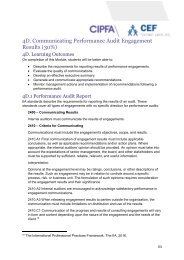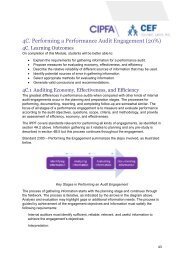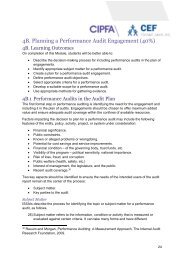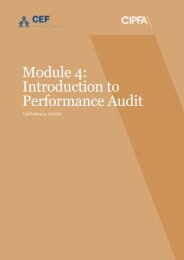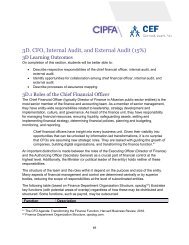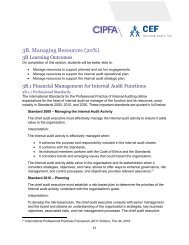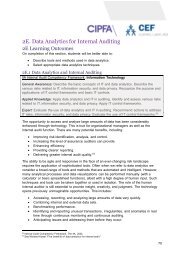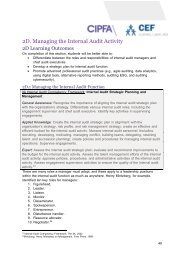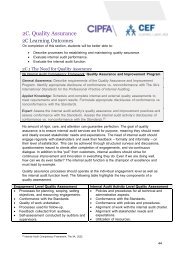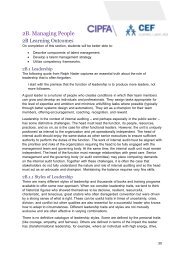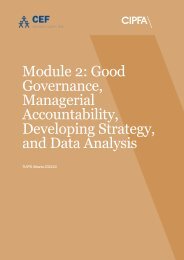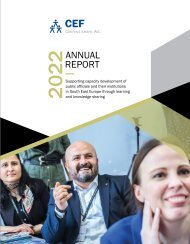TIAPS Module 1 Audit and Assurance workbook
You also want an ePaper? Increase the reach of your titles
YUMPU automatically turns print PDFs into web optimized ePapers that Google loves.
Management Issues • Lack of area expertise.<br />
• Lack of supervision.<br />
• History of legal violations.<br />
Personnel Issues • Lack of background checks.<br />
• Dissatisfied employees.<br />
• Unwillingness to share duties.<br />
Process Issues • Duties not segregated.<br />
• Poor physical security.<br />
• Poor access controls. 61<br />
Guidance published by the World Bank Group identifies examples of internal frauds<br />
perpetrated by employees:<br />
• Procurement fraud (e.g., false invoicing, credit card misuse, manipulations in the<br />
procurement process or procuring low quality items, receiving kickbacks for referring<br />
contract work to related parties).<br />
• Theft <strong>and</strong> skimming (e.g., removing <strong>and</strong> selling inventory, cash, consumables, or<br />
information, fraudulent acceptance of goods <strong>and</strong> services, <strong>and</strong> receiving<br />
compensation without reporting transactions).<br />
• Fraudulent expenditure claims (e.g., using false receipts to claim travel <strong>and</strong><br />
accommodation allowances).<br />
• Payroll fraud (e.g., adding fake employees to the payroll or claiming overtime for<br />
hours not worked). 62<br />
Accounting fraud, money laundering, <strong>and</strong> tax evasion can be added to this list.<br />
When internal auditors suspect fraud, great care needs to be taken. The organization<br />
requires well-defined procedures to follow in such circumstances. In some cases, the<br />
internal auditor is expected to pass over the evidence giving rise to a suspected fraud to<br />
investigators or law enforcement to pursue. <strong>Audit</strong>ors may be asked to be witnesses or<br />
provide other evidence. The careful preservation of papers <strong>and</strong> audit trails is extremely<br />
important. In some organization, internal auditors are expected to investigate fraud, but as<br />
with all activities this should only occur where individuals have the competency to do so.<br />
61<br />
IIA Practice Guide: Engagement Planning – Assessing Fraud Risks, The IIA, 2017.<br />
62<br />
Public Sector Internal <strong>Audit</strong>: Focus on Fraud, Center for Financial Reporting Reform, World Bank Group, 2017.<br />
63





